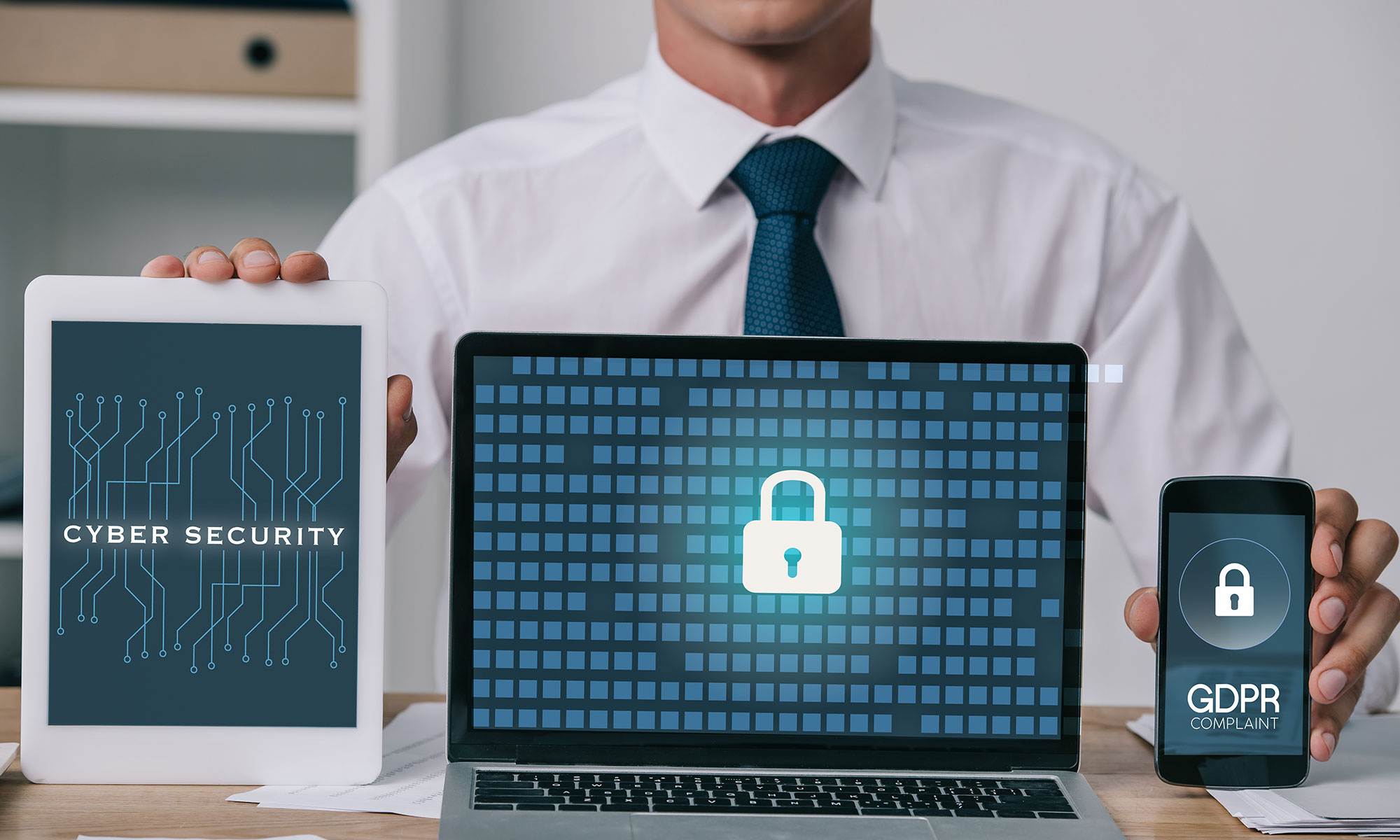Is a Fractional CISO the Answer to Your Cyber Concerns?

2024 has proven to be a critical moment for U.S. businesses that are at the nexus of technology innovations such as with generative AI, financial pressures that challenge the U.S. and global economies, and the continued evolution of malicious cyber threats. The Cybersecurity Infrastructure Agency (CISA), FBI, and White House have rallied U.S. businesses to rapidly mature their cyber defenses as U.S.-based companies face myriad domestic and foreign cyber threats. Accordingly, private and public sector businesses are adopting a “Shields Up” approach to harden cyber defenses immediately by implementing the best practices reflected in the most current cybersecurity frameworks, such as the new version 2.0 of NIST’s Cybersecurity Framework (CSF).
To affect these changes and lead their cybersecurity efforts, the Chief Information Security Officer (CISO) is at the forefront of many organizations’ cyber strategies. The CISO cybersecurity expertise and broad depth of experience ensure that businesses can orchestrate cyber operations and offer invaluable leadership to bolster the organization’s cybersecurity posture and support critical business goals.

However, despite the critical role of CISOs, the need for experienced security professionals and their high salaries often render them out of reach, particularly for small and medium-sized enterprises. Many organizations need experienced cybersecurity leadership, but can only allow for a fraction of the cost of a full-time leader. Other organizations are not concerned with salary implications, but due to a range of factors struggle to attract more experienced leaders that are so few in number.
To address these constraints, companies are hiring a fractional CISO to help them in place of hiring a full-time employee. A fractional CISO provides an expert, experienced leader to those that otherwise need help to afford or attract their services. The fractional CISO can operate as an advisor to a less experienced security leader within a business or act as the Cybersecurity leader themselves at a lower than full-time hours cadence.
Distinguishing Features of a Fractional CISO from Traditional Models
|
Aspect
|
Traditional Full-Time CISO
|
Fractional CISO
|
|---|---|---|
|
Employment Type
|
Full-time or part-time, Permanent
|
Fractional/Contracted
|
|
Cost Impact
|
High
|
Lower, flexible based on business risk tolerance
|
|
Commitment
|
Long-term
|
Flexible, scalable
|
|
Access to Expertise
|
More limited; single leader expertise; local talent pool
|
Broad; single leader with support team; broader, non-local talent pool
|
|
Resource Allocation
|
Fixed resource allocation
|
Adjustable based on the organization’s needs
|
|
Scalability
|
Limited
|
Highly scalable
|
|
Typical Hours/week
|
20-40, fixed
|
5+, flexible
|
|
Work Location
|
On site or per business policy
|
Hybrid
|
Key Elements Provided by a Fractional CISO
Governance, Risk Management and Compliance (GRC)
The CISO considers the organization’s risk profile and helps to establish risk appetite and tolerances and advises the organization on how to implement controls to reduce risk to an acceptable level without compromising business objectives. They develop and enforce security governance including policies, procedures, and standards. CISOs are experienced at aligning business to industry best practices such as through the NIST CSF and to regulatory requirements c, ensuring adherence to regulations like GDPR, HIPAA, PCI-DSS, and many more.
Security Operations Management
Fractional CISOs employ their extensive industry-based experience to lead hands-on security initiatives. Their approach revolves around the principle that cybersecurity encompasses people, processes, and technology. A successful fractional CISO covers these aspects comprehensively.
Benefits of Hiring a Fractional CISO
1. Enhanced Cybersecurity Posture
Fractional CISO services are driven by an independent assessment of an organization’s security position. Unlike internal evaluations, which may involve conflicts of interest, this external approach provides an impartial evaluation that produces fresh insights to help organizations enhance their defenses.
The assessment should include industry benchmarks and best practices, allowing organizations to compare their security performance against peers, share threat intelligence, and identify areas for improvement.
2. Cost-Effective and Efficient Model
With a fractional CISO, an organization can benefit from the knowledge and experience of a CISO at a fraction of what it would cost to maintain a full-time employee and can attract experienced CISO talent who otherwise would not be interested in a full-time role. The cost savings incurred by engaging a part-time resource can be used to fund cybersecurity enhancements.
Additionally, fractional CISO providers typically have time-tested frameworks, processes, and tools in place to streamline cybersecurity operations, enhancing the efficiency of the recipient organization.
3. Access to Expertise and Specialized Skills
Candidates for a fractional CISO are highly skilled individuals with a broad knowledge base about risk management and cybersecurity, who are adaptable enough to fit into any organization. If you hire a company that brings a team of resources, you will also benefit from working with other professionals who bring specialized knowledge in the various disciplines of cybersecurity and IT.
4. Flexibility and Scalability
Unlike hiring a full-time CISO, where compensation and service scope are relatively fixed, a fractional CISO is a flexible model that is adaptable to an organization’s budget and security needs. As organizations evolve, their cybersecurity needs may change. When that happens, a fractional CISO can scale their time up or down to meet the evolving needs of the business.
Assessing the Need for a Fractional CISO in Your Organization
Factors Indicating the Requirement for a Fractional CISO
Maturity of Cybersecurity Environment
The complexity of your cybersecurity setup is a pivotal factor. While small companies with modest infrastructure might manage with existing IT personnel handling cybersecurity, mid-sized organizations with substantial data assets and IT infrastructure benefit greatly from a fractional CISO.
Regulatory Compliance Requirements

Highly regulated sectors like finance and healthcare often require CISO expertise as it helps them meet regulatory standards and avoid penalties in a cost-effective manner.
However, the need for CISO goes beyond regulated industries. After all, cyber incidents are the leading risks to businesses worldwide. No matter the industry, a CISO-led cybersecurity program decreases the frequency and severity of incidents and plays a crucial role in securing affordable cybersecurity insurance, a critical aspect of cyber resilience.
Lack of In-House Expertise
When organizations acknowledges the need for a cybersecurity leader but lack the internal expertise, outsourcing the role of CISO to a third-party service provider can quickly and cost-effectively fill this gap.
Budget Considerations
Cybersecurity talent is expensive, especially for top-level roles such as CISO. Salaries for these roles frequently surpass $200,000. Not to mention the additional costs, such as benefits and overhead, associated with hiring a full-time executive. In these circumstances, choosing to hire a fractional CISO can offer a more economical alternative.
Temporary Projects or Initiatives
When organizations are running temporary projects that require increased cybersecurity measures, such as mergers, acquisitions, or system upgrades, fractional CISO services provide a flexible solution. It allows them to access expert guidance and oversight without the long-term commitment associated with a full-time hire.
What to Look for in an Effective Fractional CISO

When selecting a fractional CISO provider, look for a firm that has a team of experts and a proven track record in cybersecurity leadership or advisory services. An effective fractional CISO will possess a strategic vision and the ability to align security initiatives with your business objectives.
Additionally, a thorough understanding of industry compliance standards is necessary to ensure your business remains compliant and secure in an ever-evolving threat landscape.
Seek out a CISO who has both technical and business expertise, to effectively communicate complex security concepts to stakeholders at all levels.
The organization should regularly conduct evaluations of security initiatives and results to determine the security posture of the organization and whether the partnership with an outsourced CISO provider is effective.
Strengthen your Cyber Defenses Today
Cybercrime is a looming threat for all organizations, big or small. It’s not a matter of if it will happen, but when. While your organization must maintain constant vigilance, cybercriminals only need one successful attempt. That’s why a solid cybersecurity strategy is essential, and having an experienced CISO is critical.
At Hartman Executive Advisors, we offer fractional CISO advisory services tailored to your organization’s size and needs. Our CISOs, supported by a team of technical experts, draw from decades of experience to protect your organization from the ever-changing threat landscape.
Reach out to us today to learn how we can support you.


